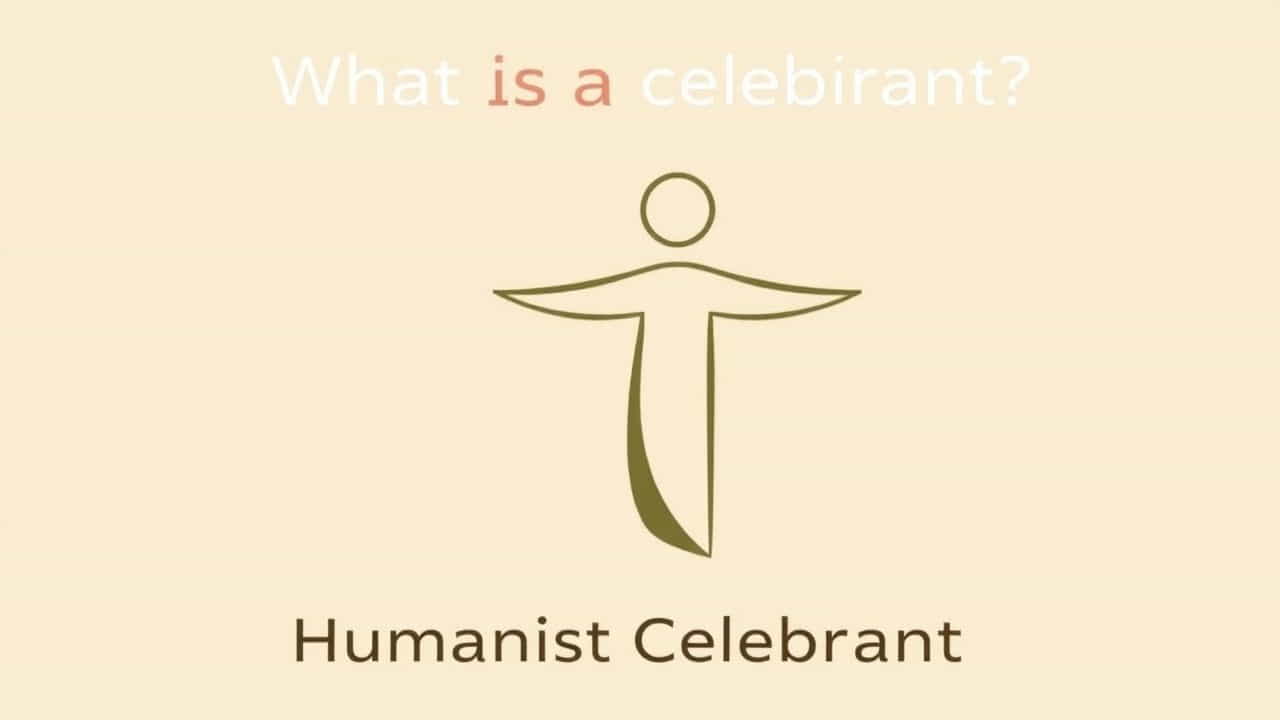A humanist celebrant is a trained professional who leads non-religious ceremonies, including funerals, weddings, and naming ceremonies. Their role is to create and deliver personalized, meaningful ceremonies that reflect the values, beliefs, and experiences of the people involved.Unlike religious leaders, humanist celebrants do not include prayers, hymns, or references to an afterlife. Instead, they focus on celebrating life, love, and human connections in a way that is inclusive and secular.
This topic explores the role of a humanist celebrant, the types of ceremonies they conduct, and how to become one.
What Is a Humanist Celebrant?
A humanist celebrant is someone who conducts secular, personalized ceremonies for life’s important moments. They work closely with families and individuals to create services that reflect their values, emotions, and wishes.
Key Features of a Humanist Celebrant
-
Non-religious – No prayers or religious elements.
-
Personalized – Tailored to reflect the individual or couple’s personality.
-
Inclusive – Open to people of all backgrounds and beliefs.
-
Flexible – Can adapt the ceremony to fit unique preferences.
What Types of Ceremonies Do Humanist Celebrants Conduct?
Humanist celebrants lead a variety of ceremonies, including weddings, funerals, and baby naming ceremonies. Each service is designed to be meaningful and unique to those involved.
1. Humanist Weddings
A humanist wedding is a non-religious celebration of love and commitment. Unlike traditional weddings that follow religious customs, a humanist wedding allows couples to:
-
Write their own vows that reflect their love story.
-
Choose meaningful readings and music that resonate with them.
-
Hold the ceremony anywhere, such as a beach, forest, or private home.
These weddings are popular among couples who want a personal, modern, and inclusive celebration.
2. Humanist Funerals
A humanist funeral is a celebration of life that focuses on honoring the deceased without religious references. A humanist celebrant will:
-
Meet with the family to learn about the person’s life and wishes.
-
Create a personalized tribute with readings, stories, and music.
-
Deliver a comforting and respectful ceremony that reflects the individual’s personality.
These funerals provide a meaningful way for families to remember and celebrate their loved ones in a secular manner.
3. Humanist Naming Ceremonies
A humanist naming ceremony is a non-religious alternative to a christening. It is a way for families to welcome a new child into their lives and celebrate their arrival.
During the ceremony, parents can:
-
Announce their child’s name and its significance.
-
Share hopes and wishes for their child’s future.
-
Include readings, music, or symbolic gestures, such as planting a tree.
This type of ceremony is ideal for parents who want to mark the occasion in a personal and meaningful way without religious traditions.
How Does a Humanist Celebrant Differ from a Religious Officiant?
| Feature | Humanist Celebrant | Religious Officiant |
|---|---|---|
| Beliefs | Non-religious, secular | Based on religious teachings |
| Ceremonies | Personalized and flexible | Follows religious traditions |
| Readings | Poems, quotes, personal tributes | Bible verses, sacred texts |
| Location | Anywhere the person chooses | Often in a place of worship |
| Language | Inclusive and non-religious | Religious language and rituals |
A humanist celebrant is the ideal choice for individuals and families who prefer a ceremony that reflects their personal beliefs rather than religious traditions.
What Happens During a Humanist Ceremony?
Although each ceremony is unique, humanist celebrants generally follow a simple but meaningful structure:
1. Welcome and Introduction
The celebrant begins by welcoming guests and setting the tone for the ceremony. This may include a brief explanation of humanist values and the purpose of the event.
2. Personal Stories and Readings
Humanist ceremonies often feature stories, quotes, or poetry that reflect the person or couple being honored. These readings help create a warm and heartfelt atmosphere.
3. Symbolic Acts
Many ceremonies include symbolic gestures that hold personal significance, such as:
-
Exchanging rings in a wedding.
-
Lighting candles in a memorial service.
-
Planting a tree in a naming ceremony.
4. Closing Words
The celebrant ends the ceremony with final reflections and words of gratitude. This leaves attendees with a lasting sense of meaning and connection.
How to Become a Humanist Celebrant
Becoming a humanist celebrant requires training, practice, and a deep understanding of humanist principles. Here are the key steps:
1. Understand Humanism
A humanist celebrant must have a strong understanding of humanist values, including:
-
Rational thinking and ethics.
-
Celebrating human life and connections.
-
Providing meaningful, non-religious ceremonies.
2. Complete Training and Certification
Many organizations offer professional training programs for aspiring humanist celebrants. These programs teach:
-
Public speaking and storytelling skills.
-
How to create personalized ceremonies.
-
Working with families and couples.
3. Gain Experience
After training, celebrants gain experience by conducting ceremonies and refining their style. Some work independently, while others join humanist organizations that connect them with clients.
4. Build a Reputation
Successful humanist celebrants develop a strong reputation by:
-
Providing high-quality, memorable ceremonies.
-
Listening carefully to clients’ wishes.
-
Marketing their services through word-of-mouth and online platforms.
Why Choose a Humanist Celebrant?
Many people choose a humanist celebrant because they want a ceremony that is:
-
Personalized – Tailored to their unique beliefs and values.
-
Inclusive – Welcoming to people of all backgrounds.
-
Meaningful – Focused on life, love, and human connection.
-
Flexible – Free from religious restrictions and traditions.
A humanist celebrant plays a crucial role in leading non-religious, meaningful ceremonies that celebrate life’s most important moments. Whether conducting a wedding, funeral, or naming ceremony, their job is to create an inclusive, heartfelt experience that reflects the values and wishes of those involved.
For those who want a personalized, secular, and meaningful ceremony, a humanist celebrant is the perfect choice.
